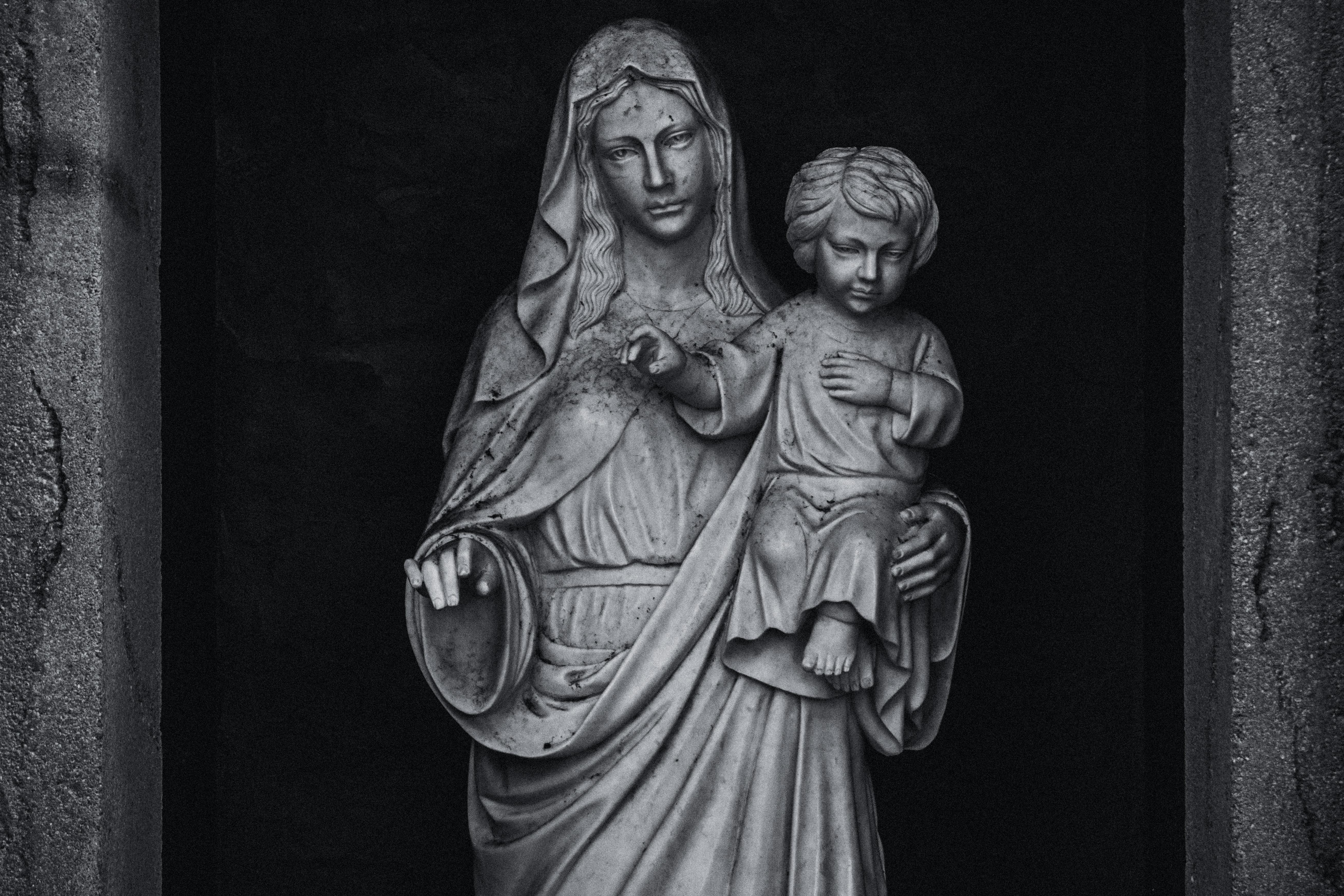But alas! How far do I have to go to find You in Whom I have already arrived.–Thomas Merton
Francis Rouleau (1901-1984), a Jesuit priest, was my spiritual adviser from the late 1960s until his death in 1984. He was a masterful spiritual director, and we could talk about anything and even disagree, but mostly we we embrace and particular “worlds” with great esteem, interest and affection. We didn’t care if we looked bad, which was weird for me. He said, “Let’s lift each other up in the Lord, Jesus, the Sacred Heart. And let’s be real.”
we had in progress horn announcement horn conversations about our adventures, meditation, the Spiritual Exercises of Saint Ignatius, Eastern religion, relationships, work and money, activism, theology, love for the poor, and his monumental writings on the history of the Jesuits in China. We explore the Ignatian approach of “Finding God in all things”–“Do what you are doing”–“Be contemplative in action”. Francis held in high regard the mystical traditions of all religions. I told him about my attraction to Vedanta and Buddhism from my high school days in Los Angeles. He shared some experiences with Buddhism when he lived in China.
Francis once surprised me when he said that it was good for some Jesuit seminarians to fall in love while studying. It was natural to fall in love and then be open to continue learning what love is and be ready to choose wisely then between a religious or a lay life, both worthy, dignified by the heart and the wisdom with which you live them.
“Falling in love should teach such seminarians the nature of an authentic love of God and of oneself. Too often this love is rationalized abstractions, formalistic, a love suffocated with internal tensions, self-centeredness, petty motives, the projection of the ego and something as well as a dichotomy in their lives. The true love of God is the total exit of himself towards another Person, an ecstasy of the complete personality, the whole body-mind that we are… not only of mind, but of the heart, affectivity, our personality-corporality, explosive of the whole being”.
Francis introduced me to Karl Rahner, SJ (March 5, 1904-March 30, 1984) and I greatly admired his teaching of “always, now” being open to experiencing God’s Self-Communication, transcendent yet intimate Mystery, which is always and now Here. Meaningful communications of spirituality are related to an experience of the original Mystery (unique for each person) felt in the corporeal heart and full of grace, but not degrading of our ego-self, non-dualistic. Rahner spoke of a mysticism of everyday life: we find God, not only in deep mystical encounters, but also in the ordinary. “The simple and honestly accepted daily life contains in itself the eternal and silent mystery, which we call God and the secret grace of it.”
Francis listened to my intense interest from 1972 to 1977 in exploring Eastern religion, Alan Watts, Ram Dass, Suzuki Roshii, Chogyam Trunpa, and other teachers who crossed the spiritual supermarket. I told Father Francis that he was not a worshiper of gurus, but a serious and reverent student of expert teachers. To be sure, to varying degrees, cults abounded. Francis told me that all religious organizations, including the Jesuits, have cultish tendencies (in the negative sense). He emphasized the importance of doing spiritual exercises that suit you, not artificially created for “all members.”
“Don’t let India’s Vedanta-Buddhist-guru chants/rituals/theology fool you into worshiping the guru as an exclusive god or some chronic worship community (saying we are the only true ones); say I have God or even ‘I am That’ never realize that they mean any exclusive title to be God.”
Francis did not approve of my favor for free sexual love and rock n’ roll, religion/alternative lifestyles, currents of those hippie times that I happily (sometimes quite naively) let myself go. He scolded me for going through a promiscuous phase in my life. “You’re being too selfish, he would say… But let’s discern more together, maybe I’m missing something about this experiment of yours.” He told me: “Don’t forget: I am of the old school.” I joked, “This is all temporary.” And, of course, it passed. But his criticisms weren’t harsh when we were together. Francis valued Buddhist teaching, but felt that God is personal, as demonstrated in Jesus. ecstasy of the goodness of God and of that goodness that shines in each person. satsang, words and Silence, with a Master. All afternoon she would disappear timelessly into her humble office and bedroom in Los Gatos, California. The light shone on him like on the face of a happy child. “I love being alive,” exclaimed Francis.
Sometimes he spoke of his own loneliness. “Loneliness is often painful in my condition as a crippled body… I pray to overcome self-pity and discouragement.” He said that excessive self-pity takes away your sensitivity to God’s presence. Francis told me when he was feeling a lot of physical and psychological pain; he was especially affected by a superficial community life. He once he cried freely. “My community doesn’t communicate heart to heart as much as I would like. My heart feels open but there is little interest in really sharing, a lack of enjoying God’s gifts together.”
Father Francis observed that his self-pity, if accepted and treated with kindness, was like spiritual food, food to surrender to the Light, our Source always creating us and drawing us into that eternal Grace. “Spiritual exercises are as important as eating my meals.” I couldn’t always understand him, but his presence was profoundly peaceful. Sometimes we just sit in silence. “We do a lot, and that’s fine, it’s important, but we must be so much too, just Be. Isn’t it a joy to just spend time together?”
Francis made me feel that our humanity was more important than our practice of religion. He encouraged me to continue to be interested in human rights in the world. He wanted to know about my participation in meetings of Chinese university students to promote human rights in China. He heard about César Chávez’s trade union movement and was interested in the Jesuit projects in Mexico and Central America that I visited.
And how Francis loved China! Preach deep respect for the inviolability of the human person; he spoke out against the injustices in China. He was forgiving, but not forgetting or ceasing to speak. He called for real change and was interested in community organizing that some of the Jesuits were involved with. He was optimistic that the kindness and intelligence of the Chinese would increasingly permeate political institutions. But he would sometimes say, “I don’t know.”
Francis had been through the Japanese invasion of China and then the communists, time in the Philippines and Rome, and 21 years in Los Gatos, California, where I met him so often. In China, Francis has been collecting writing-resources on the Jesuits in China and topics such as the Mass in the vernacular. Ed Mowrey writes of this time: “When the communists arrived in Peking, Francis’s superior told him to take all his work, thousands of pages of handwritten notes, hundreds of microfilms he had collected from around the world working in eight languages etc., told him to take them all and throw them in the oven and destroy them. He did so without hesitation.”
The purpose of Saint Ignatius spiritual exercises it is learning to let go of “inordinate attachments”. Francis had that spiritual quality of detachment in the most passionate sense of him. His religion did not protect him from a broken heart but his love and wisdom allowed him to live. “Live life fully, that’s the point.” Although he told me how some of his fellow Jesuit priests suffered in Chinese prisons, he didn’t tell me much about his years in China, but then I read and learned more from the book, Celestial Dragon by Barry Martinson (Taipei Ricci Institute, 1998).
Francis’s first job was as a reporter for Yakima, the Washington daily. A case of rheumatic fever (with a debilitating cardiac effect on him) stopped his plan to accept an appointment to the Naval Academy, Annapolis, Maryland. His sickbed became a kind of monastery cell, and he decided to become a Jesuit priest. He later became disabled by the pain of severely active ankylosing rheumatoid spondylitis (spinal arthritis). I still marvel at the creative energy, humor, courage, beautiful humanity, love and wisdom that he generated over the years. I will always be grateful.






